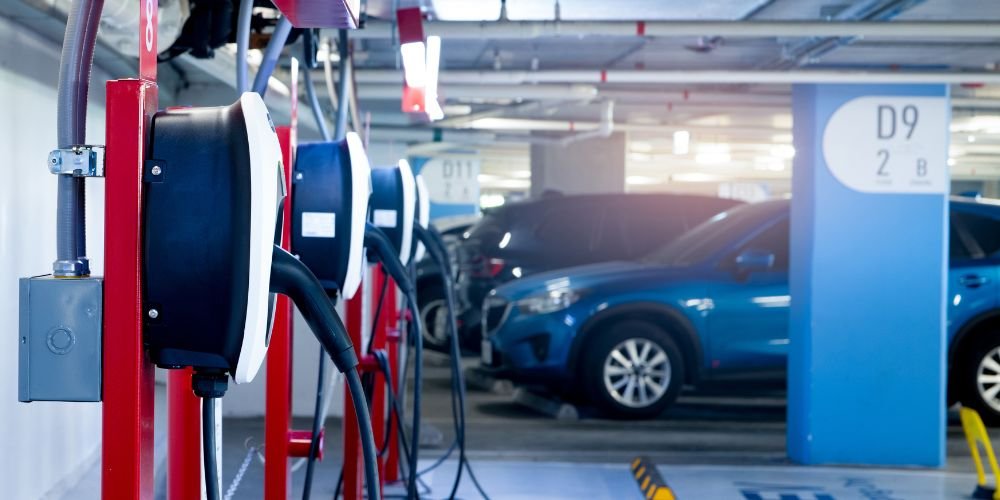EV Battery Technology is the cornerstone of the electric vehicle revolution, propelling the automotive industry towards sustainable and eco-friendly transportation. This comprehensive exploration delves into the intricacies of EV Battery Technology, unraveling its fundamental principles, key components, recent innovations, notable applications, and the transformative impact it has on the transition to electric mobility.
Understanding EV Battery Technology
EV Battery Technology is the driving force behind the shift from conventional internal combustion engines to electric vehicles. This technology involves designing and developing high-performance batteries that can store and deliver the energy required to power electric vehicles. The advancement of EV Battery Technology is pivotal in addressing concerns related to range, charging speed, and overall performance, making electric vehicles increasingly viable and attractive to consumers.
Key Components of EV Battery Technology
The core components of EV Battery Technology contribute to its functionality, efficiency, and overall performance:
- Battery Cells: The basic building blocks of EV batteries are individual cells, typically lithium-ion cells, that store electrical energy. These cells are arranged in modules and packs to create the necessary voltage and capacity for electric vehicles.
- Battery Management System (BMS): The BMS is a critical component that monitors and manages the performance of individual cells within the battery pack. It ensures balanced charging, prevents overcharging or overheating, and optimizes the overall health and longevity of the battery.
- Cathode and Anode Materials: The cathode and anode materials are crucial in the electrochemical reactions that occur within the battery cells. Advances in these materials, often based on lithium, contribute to higher energy density and improved performance.
Recent Innovations in EV Battery Technology
Recent innovations have propelled EV Battery Technology to new heights, addressing key challenges and pushing the boundaries of performance:
Solid-State Batteries
Solid-state batteries represent a significant advancement, replacing traditional liquid electrolytes with solid materials. This innovation enhances safety, increases energy density, and mitigates concerns about flammability and degradation often associated with liquid electrolytes.
Fast Charging Technologies
Improvements in fast-charging technologies have significantly reduced charging times for electric vehicles. Innovations such as high-power chargers and enhanced charging protocols contribute to the widespread adoption of electric vehicles by addressing range anxiety and providing convenient charging solutions.
Recycling and Sustainability
The focus on sustainability extends to the end-of-life considerations for EV batteries. Innovations in recycling technologies aim to recover valuable materials from used batteries, minimize environmental impact, and ensure responsible disposal practices.
Notable Applications of EV Battery Technology
EV Battery Technology finds applications beyond powering electric vehicles, contributing to various sectors and industries:
Grid Energy Storage
EV batteries’ scalability and energy density make them suitable for grid energy storage. This application enables the efficient storage of renewable energy, mitigating the intermittency of sources such as solar and wind power, and contributing to a more stable and sustainable energy grid.
Portable Electronics
The lightweight and high-energy density characteristics of EV batteries have translated into advancements in portable electronics. EV Battery Technology has significantly influenced the development of longer-lasting and more efficient batteries for various consumer devices, including smartphones and laptops.
Stationary Energy Storage for Homes and Businesses
EV batteries repurposed for stationary energy storage systems help homeowners and companies store excess energy generated from renewable sources. It reduces reliance on the grid and contributes to more sustainable and self-sufficient energy practices.
Industrial Applications
EV batteries’ robust and high-capacity nature makes them suitable for various industrial applications, including powering electric forklifts, providing backup power for critical infrastructure, and supporting off-grid operations in remote locations.
Challenges in EV Battery Technology
While EV Battery Technology has witnessed significant advancements, several challenges persist, impacting widespread adoption and efficiency:
Cost and Affordability
The cost of manufacturing high-performance EV batteries remains a significant barrier to the widespread adoption of electric vehicles. Efforts to reduce production costs and enhance the affordability of EVs are crucial for market penetration.
Energy Density and Range
Enhancing the energy density of batteries is crucial for extending the driving range of electric vehicles. Addressing this challenge involves research into advanced materials and technologies that can enhance the storage capacity of batteries without compromising safety.
Resource Availability and Recycling Infrastructure
Relying on materials such as lithium, cobalt, and nickel raises concerns about resource availability and the ethical implications of mining practices. Developing an efficient recycling infrastructure is crucial to minimizing the environmental impact of extracting these materials and ensuring a sustainable supply chain.
Future Trends in EV Battery Technology
As technology continues to advance, the future of EV Battery Technology promises exciting trends that will further redefine the capabilities and applications of electric vehicle batteries:
Solid-State Battery Commercialization
The commercialization of solid-state batteries is anticipated to be a game-changer in the electric vehicle market. Solid-state batteries offer higher energy density, faster charging times, and improved safety, paving the way for the next generation of electric vehicles.
Advanced Materials and Chemistry
Ongoing research into advanced materials and battery chemistry aims to improve the interpretation and efficiency of EV batteries. Innovations in silicon anodes, graphene, and novel electrolytes can further optimize battery characteristics.
Vehicle-to-Grid Integration
Vehicle-to-grid (V2G) technology integration allows electric vehicles to draw power from the grid and return excess energy. This bidirectional energy flow enhances grid stability, supports renewable energy integration, and provides additional revenue streams for EV owners.
Beyond Lithium-Ion
Exploration of alternative battery chemistries beyond lithium-ion, such as lithium-sulfur and metal-air batteries, aims to address the limitations of current technologies. These alternatives offer potential breakthroughs in energy density, cost-effectiveness, and environmental impact.
Conclusion
EV Battery Technology stands at the forefront of the global shift towards sustainable and electric mobility. From powering electric vehicles to contributing to grid energy storage and beyond, the impact of these advancements extends across industries and applications. Despite existing challenges, the ongoing innovations in solid-state batteries, fast-charging technologies, and sustainable practices signal a promising future for EV Battery Technology. As research continues to push the boundaries of what is possible, electric vehicles are poised to become not just a viable alternative but a driving force in shaping a more sustainable and eco-friendly future for transportation.





